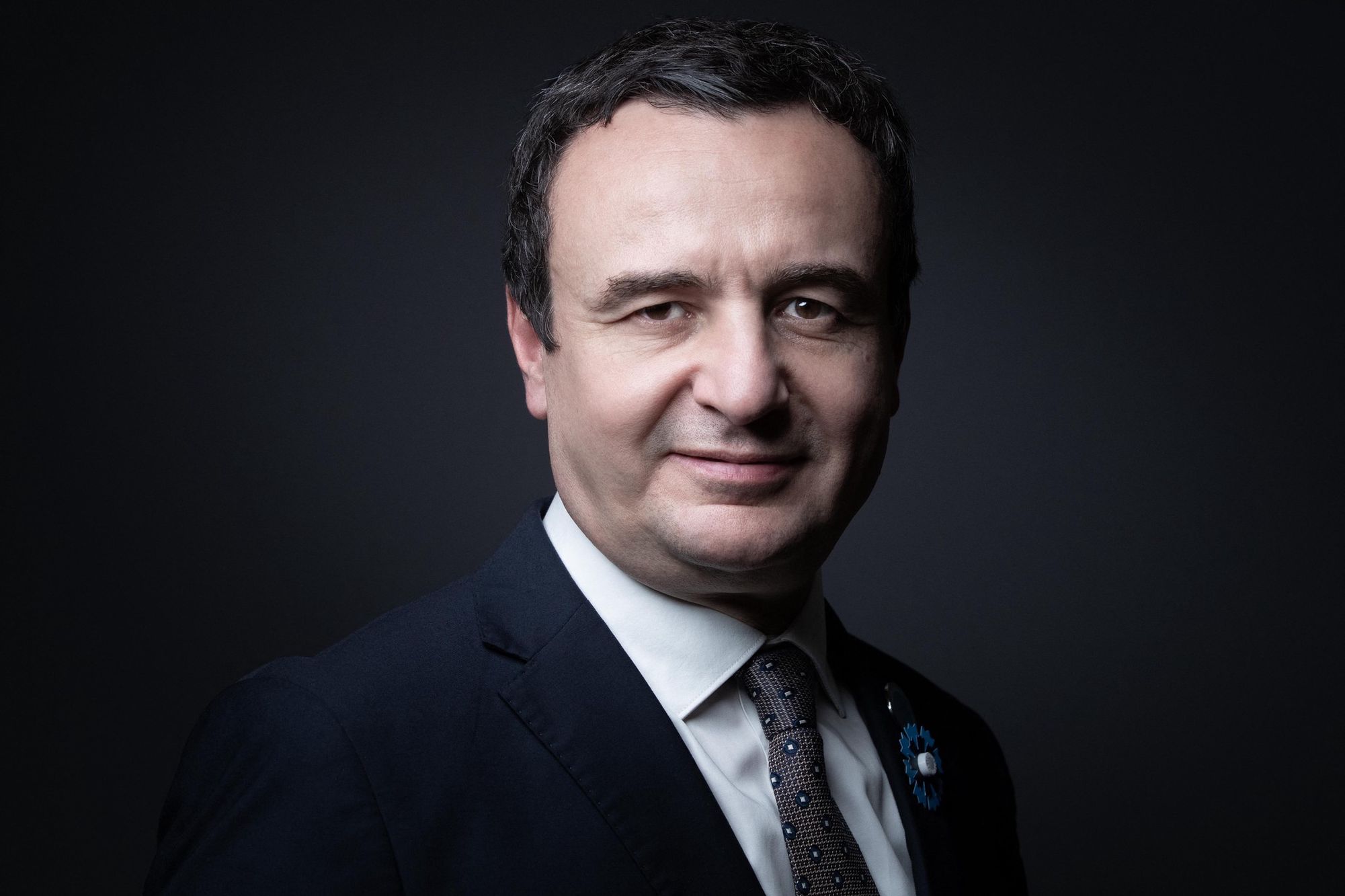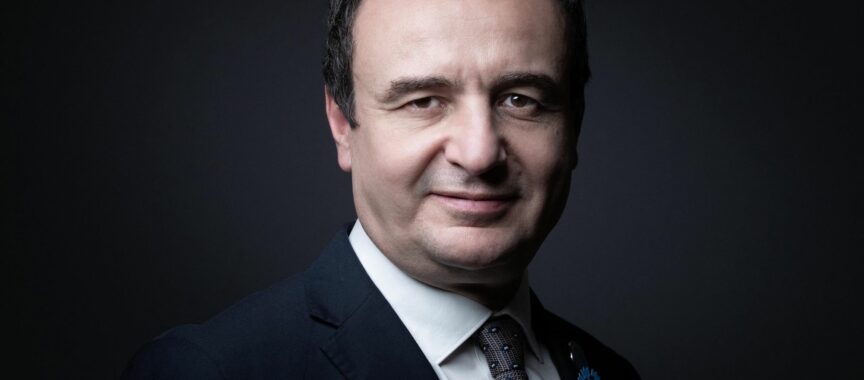Below you may find Prime Minister Kurti’s interview with Stephan Israel, conducted on January 9 and published in Tages-Anzeiger on January 16, 2023.
Unofficial translation
Interview with Albin Kurti, Prime Minister of Kosova
“Serbia has never distanced itself from Milosevic”
The head of the government of Kosova, Albin Kurti, ahead of his visit to the World Economic Forum in Davos, warns against the “pan-Slavic hegemony” of Serbia and Russia in the Balkans.
Mr. Kurti, you are going to the World Economic Forum in Davos this week, what is your message there?
Visit and invest in Kosova! Because Kosova is a progressive, pro-European and democratic country. Kosova is a double success story. In 1999, NATO democracies stopped Serbia’s genocide in Kosova. Since then, we have proven that economic development and democracy go hand in hand.
Will you meet with Serbian President Aleksandar Vucic and seek a solution to the deadlocked relations between Belgrade and Pristina?
It depends on the EU special envoy, Miroslav Lajcak. We are interested in achieving full normalization of relations between the two countries, based on mutual recognition. We are always ready for a constructive dialogue.
Recently, however, your tough stance on the dispute over mutual license plate recognition has contributed to an escalation of the situation.
Would Switzerland accept it if a minority in the country drove with Italian or French license plates for years? The vast majority of Serbs in the north of our country have no problem with Kosova license plates. A small group is instrumentalized by Belgrade. The armed people behind the barricades are not interested in human rights, but in territory. They want to preserve the north of Kosova as a law-free zone. We have destroyed six drug labs in the northern municipalities and crypto currency production labs that have taken advantage of the free electricity. Nobody pays electricity bills there.
Serbs have resigned from their jobs in the police and judiciary. This is a step back in the integration of the Serbian minority.
I do not think so. During the last ten years, we have had a fake integration. Serbian officials have largely boycotted the hearings. With my new Serbian minister and his advisor, we now have real integration. They are the two most hated people in Belgrade, even more than me.
You once won elections by promising to fight post-war corruption. On the other hand, relations with Serbia were not a priority. Was this a mistake?
Belgrade is upset because we are doing quite well even though they don’t recognize us. According to international experts, we have made great progress in the fight against corruption, rule of law and media freedom.
But still, Kosova without fixing the relationship with Serbia remains pending.
Of course, our neighbor to the north will remain. But I have enough to do at home. Our budget is 17 percent higher than last year and we have had over 10 percent growth over the past year. In other words, we are on a good path, despite the lack of recognition from Belgrade. When I wake up in the morning and think about the day’s priorities, Serbia is not the first.
You wanted to seek dialogue with local Serbs instead of Belgrade. This was not noticed much.
No head of government before me has had so many meetings with representatives of Serbian civil society. But we don’t do it publicly. I hired a Serbian adviser at the beginning of my first term. As soon as his appointment became public, he and his wife were so threatened that the young man resigned from his post. Others before him who wanted integrate have been killed.
Young people are voting on their own will, not only members of the Serbian minority, but also many Kosova Albanians are leaving Kosova.
Of course, unfortunately it is true. We are working to reverse the trend. I am also for the normalization of relations with Serbia. But, as U.S. President Joe Biden recently said, mutual recognition should be the centre piece. Until now, in the Brussels dialogue between Belgrade and Prishtina, we have always been asked to make compromises and concessions, with the idea that Serbia will finally recognize us. But it will never work that way.
Isn’t the EU more important for Kosova than the USA?
Olaf Scholz said the same thing, even though Biden said it first. But the EU should think about whether it wants to continue giving all its funds without conditions. Belgrade has not approved sanctions against Moscow and receives the cheapest gas from Russia. For Belgrade, relations with Russia and also with China are a priority. This has to come at a price.
President Vucic was the propaganda minister of the dictator Slobodan Milosevic, while you were sent to Belgrade as a political prisoner. Does this affect your cooperation?
I know who I’m dealing with. Germany had denazification after World War II. Serbia has not dealt with its past. Aleksandar Vucic has already described me as terrorist scum in his propaganda media. At the same time, Serbian generals convicted of war crimes are given a post at the military academy after completing their imprisonment in Belgrade. What should they lecture there?
From your point of view, normalization with the most important neighbor, then, is not possible?
Serbia is not a normal country, because it has not distanced itself from the legacy of the dictator Slobodan Milosevic. Now add to that the non-distancing from Vladimir Putin and his war in Ukraine. Democracy was a brief interlude in Serbia after the end of the dictatorship. It will soon be 20 years since pro-Western Serbian Prime Minister Zoran Djindjic was assassinated in Belgrade. Since then, the dark forces in Serbia celebrate their return. Belgrade seeks a relationship with its neighbours similar to what Moscow has with Ukraine and Belarus. Therefore, this neighbouring is a security risk for us.
Can a greater conflict be imagined, as in the 1990s?
It would be irresponsible to say that there is no risk of escalation. Since Russia’s attack on Ukraine on February 24, we have seen indicators of a Pan-Slavic hegemony, such as joint military exercises between Serbia and Russia. Even a few hundred people can cause great damage.
What do you mean by pan-Slavic hegemony?
Serbia wants to turn Republika Srpska in Bosnia, Montenegro and northern Kosova into a sphere of influence, the same way that Russia behaves with Belarus and Ukraine. Our problem is that our Western partners believe that Serbia is being driven only by opportunism, it is waiting for the end of the Putin era, and then will be clearly oriented towards Europe. This is naive. Aleksandar Vucic is awaiting Donald Trump’s return to Washington more than the end of the war in Ukraine. Eighty percent of the population has a positive opinion of Vladimir Putin. Serbia sees itself as part of a pan-Slavic, Orthodox sphere outside of Europe.
EU foreign policy chief Josep Borrell recently accused you of being the main obstacle to blocking normalization talks with Serbia. Why don’t you implement agreements like those on the autonomy of a Serbian association of municipalities?
In the last ten years, we have signed 33 agreements with Serbia. Almost nothing has been implemented. Some of these agreements would also be in our interest, but Belgrade always insists on municipal autonomy. Why do you think? Serbia wants Kosova, like Bosnia, to have a state within a state with Republika Srpska, i.e. to become non-functional. I told Vucic that if he really wants to do something for the Serbian minority, he should recognize Kosova. He cannot say that Kosova is a “fake state” and at the same time stand up for municipal autonomy within this state. It’s like ordering tea without a cup. We are not stupid.
Ukraine, a country at war, has been granted EU candidate status. More than 20 years after the end of the war, Kosova is far from that. Disappointed in the EU?
We have no alternative to the EU. There is no point in being bitter or disappointed. I was very proud when I was able to submit our membership application on December 15. Do you know what the president of Serbia did the day after? He wrote to all five EU non-recognizer not to accept the application. I am very happy that Ukraine received the candidate status. Ukraine deserves it. Ukrainians deserve full solidarity in their fight against Russian fascism.
On January 1 next year, Kosova will be the last Balkan country to be granted a visa-free travel to the Schengen area. Will the youth exodus accelerate then?
People with an education already get work visas. Germany is attractive and hungry for workers. Anyone who wanted to go has long since taken their chance. Some come back and then invest here. But it is important that family visits will be easier and that people can discover Western Europe without having to spend a lot of money on a visa.
Isn’t the exodus a problem for Kosova as well? Companies are now getting workers from India or Thailand.
It is a big problem. We have many lawyers and political scientists who want to become diplomats. But we only have 30 embassies. Where can we accommodated all these diplomats? What we lack are, for example, trained chefs, bricklayer or hairdressers. That is why we are working to introduce a dual education system like in Switzerland or Germany.
Last modified: January 18, 2023

